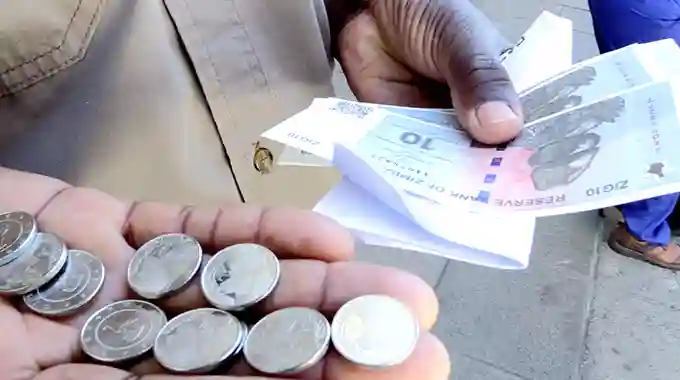Some supermarkets, vendors, commuter omnibus operators, and tuckshops are reportedly rejecting payments in the ZiG currency following a 43% devaluation effected by Reserve Bank of Zimbabwe (RBZ) Governor John Mushayavanhu on Friday.
As a result, traders are now only accepting payments in USD, leaving many Zimbabweans, who have previously lost savings due to currency changes, in a difficult position.
A tuckshop operator in Dzivarasekwa Extension, Harare, told NewZimbabwe.com, “We don’t know what exchange rate to use, making it hard for us to continue accepting the ZiG. What if we accept it and it loses value while in my possession?”
Some transport routes that previously charged ZiG10 now cost US$1, as operators fear that the coins will be dumped on them.
Critics argue that the Zimbabwean government has effectively rejected its own currency from the start, as the ZiG cannot be used for essential transactions like passport applications, customs duties, rentals, or fuel purchases.
Introduced in April 2024 at a rate of ZiG13.50 to US$1, the ZiG was initially promoted as a solution to Zimbabwe’s ongoing economic crisis, but it has since seen heavy devaluation on the black market.
On September 27, the RBZ set the official exchange rate at ZiG24.3 per US$1, up significantly from ZiG14.1 per US$1.
In an interview with the state-controlled Sunday Mail newspaper, RBZ Governor John Mushayavanhu explained that the devaluation was in response to an artificial spike in demand for foreign currency and inflationary pressures.
Meanwhile, journalist and government critic Hopewell Chin’ono remarked, “The Zimbabwean local currency is now dead, as many local retailers are pricing exclusively in US dollars to avoid losses.” He added:
When a local currency loses its value and citizens have no confidence in it, this outcome is inevitable.
The Zimbabwean government rejected its own currency from day one for transactions such as passport applications, customs duties, fuel, and more.
When a government rejects its own currency, it would be irrational for anyone else to have confidence in it.
This is precisely what is happening, compounded by excessive money printing to facilitate the looting of public funds.
When a government itself does not demonstrate faith in its own currency, it sends a clear signal to the public that the currency is neither reliable nor stable.
The lack of confidence in the local currency has led to the dollarisation of the economy, with Zimbabweans preferring a more stable currency, like the US dollar, for transactions and as a store of value.
You can’t blame them, Zimbabweans have been scammed four times by the corrupt ZANU PF regime, losing all their savings.
This time around, they have lost half of their savings that were in the local ZIG currency.
More: Pindula News

